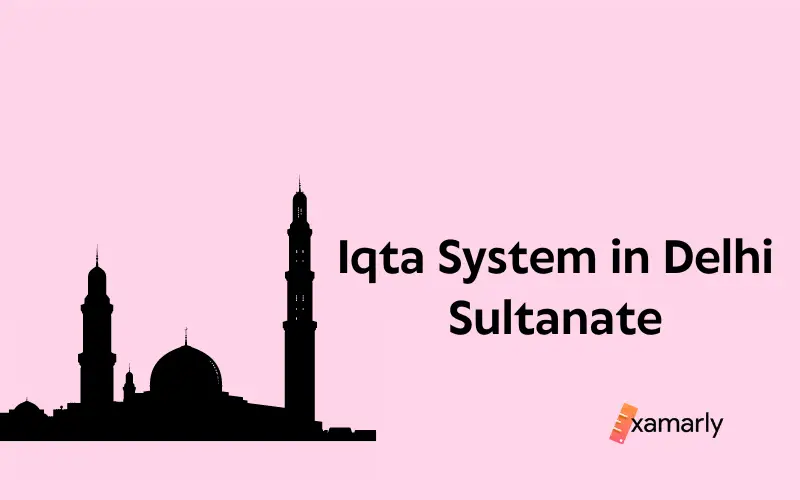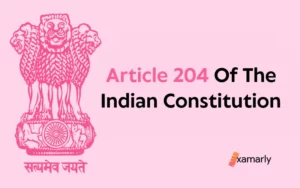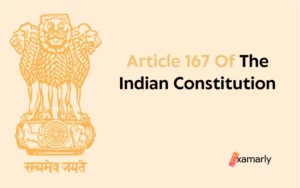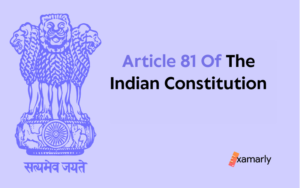Do you want to know about the Iqta system in Delhi sultanate? The Indian land tax system changed considerably after the reign of Mohammad Ghori. The subsequent formation of the Delhi Sultanate brought in many administrative changes.
The Iqta system in Delhi Sultanate is a political, administrative, and agrarian system that was prevalent throughout the Sultanate. It had its roots in the Turko-Afghan political structure. It originated as an Arabic custom and later the Turks adopted it and then carried it to India.
Till that time, the basic type of Hindu land tenure as per old Manu’s rules existed. The introduction of the Iqta system supplied the country with an agricultural economy.
It also gave the members of the ruling elite the advantage of obtaining money without any permanent commitment to any area.
This system introduced by Iltutmisht later became the backbone of the Delhi sultanate administration. In this article, we will brush through how the system helped in administration. Read on to learn more.
- What Is Iqta?
- Introduction of Iqta System of Delhi Sultanate
- What is Iqta System?
- Who is an Iqtadar?
- Evolutions of the Iqta System in Delhi Sultanate
- Conclusion
- FAQs
- What is the Iqta System in Delhi Sultanate?
- Who Abolished The Iqta System?
- When was the Iqta System introduced in Delhi Sultanate?
- What was the purpose of the Iqta System in Delhi Sultanate?
- How did the Iqta System work in Delhi Sultanate?
- Who were the beneficiaries of the Iqta System in Delhi Sultanate?
- Did the Iqta System exist in other parts of the world?
- Was the Iqta System successful in Delhi Sultanate?
- What were the limitations of the Iqta System in Delhi Sultanate?
What Is Iqta?
Iqta refers to land and the Kharaj (land revenue) is assigned to a person under particular conditions. The revenue systems of the Turkish Sultans rested on Iqta and Kharaj.
This system supplied the country with an agricultural economy, while members of the ruling elite obtained the money without any permanent commitment to any area. An Iqta was originally decided based on one’s salary.
Under the reign of Firoz Shah Tughlaq, it changed to be hereditary. In essence, it was the land that the army officials got in exchange for their military services.
Introduction of Iqta System of Delhi Sultanate
This system was first introduced to India in 1206 AD by Muhammad Ghori. But, it was Iltutmisht who managed to give it an institutional form.
What is Iqta System?
An innovative system for the distribution of pieces of land and governmental organization emerged under Iltutmish’s rule.
The Delhi Sultanate’s territories were divided into many small and large sections known as Iqta. These Iqtas were given to Sultan’s trusted officials, nobles, and warriors for administration.
Iqtas are of two types:
- Big – Big Iqta was administered by either important wealthy nobles or army officials. They were held by province governors who also had administrative responsibilities.
- Small – Small Iqta holders were small troop holders with no administrative obligations. These minor holders owned and appropriated all of the cultivators’ money. But they were obligated to show themselves with horses and weaponry whenever the Central Government called. Khuts and Muqaddams were the names given to these little Iqta bearers.
Who is an Iqtadar?
Iqtadar or Muqti was the title given to the person who owned the Iqta. He had the authority to manage and recoup the entire revenue from the Iqta.
The Diwan-I Wizarat was tasked with calculating the tax income (kharaj) from each Iqta. The chiefs of an Iqta were also called Naib Sultan, Nazim, or wali.
Every Iqta was led by an experienced commander, generally a member of the royal family or a famous Amir (noble) and loyalist.
Role of an Iqtadar
- He was supervised by the Central Government. He carried out Sultan’s orders. His authority within the province was like the authority the Sultan had in his empire.
- He kept enormous forces and was compelled to dispatch them when the Sultan asked. He assigned warriors to his army.
- He collected taxes from the people who lived in his domain.
- He kept the land under his command in order and safeguarded the people’s lives and possessions.
- He spent the income received on the upkeep of his troops, his pay, and other administrative expenses, and put the rest in the state treasury. He submitted an annual report of his income and expenses.
Evolutions of the Iqta System in Delhi Sultanate
Let us look at how the practice of the Iqta system and the assignment of land revenue changed over time. This can be noted under the reign of various rulers of the Delhi Sultanate.
- Mohammad Ghori – The system was initially launched by Mohammad Ghori.
- Shamsa ud-Din Iltutmish – The system was first effectively structured by Sultan Iltutmish. He provided a thorough explanation of the Iqtadar’s responsibilities. Under the new organizational structure, the Iqtadar was in charge of maintaining certain troop levels, overseeing the administration of the territory they controlled, bringing in money, and depositing Fawazal into the central treasury.
- Ghiyas ud din Balban – Sultan Balban tightened central authority over Iqtadars. He sent an accountant Khwaja to each Iqtadar to verify the authenticity of their records. Balban moved Iqtadar from one Iqta to another, preventing the officer in charge from forming bonds with others.
- Alauddin Khalji – To expand Khalisa territory, Sultan Alauddin Khilji (Ala-Ud-Din Khalji) dissolved the small Iqtas that were present in the Doab province. He enhanced Iqtadar’s revenue demands. Diwan-i-Mushtkharaz, a new department, helped to collect tax debt from residents of Iqtadar.
- Mohammad Bin Tughlaq – He further tightened central control over Iqtadar. Muhammad Bin Tughlaq segregated Iqtadar’s income and expenses. They directed that all revenue be deposited in the treasury of the central government, which is where they received payment for their salaries and other expenditures.
- Firuz Shah Tughlaq – The system became hereditary under Firoz Shah Tughlaq Iqta’s rule. Iqtadar’s widow, son, son-in-law, or slave was allowed to succeed after his passing.
- Lodhi reign – The idea of Fawazal was abandoned during the Lodhi era. The Iqtadar permitted the keeping of the money derived from the Iqta. As a result of Sultan’s position as the first among equals, Afghan control in Lodhi was prolonged. Iqta became Sarkar and Pargana. Greater Iqta became known as Sarkar and smaller Iqta as Pargana.
Related Posts:
- Firoz Shah Tughlaq: 1st to Table the Canal Irrigation
- Bahlul Lodi: First Sultan Of The Lodi Dynasty
- Nasir Ud Din Mahmud Shah Tughluq
- Ghiyas Ud Din Tughlaq
Contributions and Pros of the System
The Iqta system helped in the growth and strengthening of the of Turko-Afghan powers. The Sultan is no longer responsible for anything owing to the system.
It allowed the commander to command every duty that fell under his jurisdiction. Maintaining good central control became possible since the Iqtadar central officer was directly answerable to the Sultan.
The system increased performance and achievements since the top-performing commander received Iqta as payment.
It aids in imperial expansion since Iqtadar used to lead military expeditions against nearby Independent nations on Sultan’s behalf. Due to the division of labour in maintaining soldiers between Iqtadar, the arrangement also made it easier to maintain a huge army.
Also, the fact that Iqtadar used to receive taxes and deposit them in the royal treasury strengthens the Sultanate’s economic structure. By designating the ambitious Nobel as Iqtadar in various locations, the system maintained the capital free from conspiracies held by strong commanders.
The system helped in maintaining trustful agents. Also, the system gives talented commanders the chance to use their power for the welfare of the state.
It enhanced the ease of revenue collection. It also helped keep a balance between administrative expenditures and military expenditures. In totality, it made notable changes in revenue & administration and led to a long-lasting agrarian reform.
Cons of the System
The Iqta system ran smoothly under the reign of any strong Sultan. But, when a weak or greedy Sultan takes the throne, problems inevitably arise.
A large number of Iqtadar proclaim their freedom from Sultan after the passing of a powerful monarch. To safely take control, the new Sultan has to put out a lot of effort.
Iqtadar in charge possessed vast financial and military resources. They were constantly able to reject the weak Sultan’s orders.
The centrifugal effect becomes prominent when the Iqta system becomes hereditary. Firoz Shah Tughlaq did this and it significantly led to the downfall of the Tughlaq dynasty.
The Lodhi Iqta method got much more difficult once Lodhi ceased collecting Fawazal from Iqtadar. Some Lodhi Iqtadar in Punjab who planned to grab control were defeated.
Conclusion
The Iqta system as an original form of collection and assessment of revenue was effective. It had the additional benefits of contributing to the administration and maintenance of a strong reign and army.
It also had considerable control of markets and even initiated an agrarian revolution. Yet, the success of the system or its institutional status depended a lot on the ability of the ruler to extend effective control and the reliability of the Iqtadar.
Nevertheless, this earlier practice is a must-know for all UPSC aspirants. Hope you have a better knowledge of how the Iqta practice influenced the administration of the Delhi Sultanate.
FAQs
What is the Iqta System in Delhi Sultanate?
The Iqta system was a land revenue system introduced in the Delhi Sultanate. It granted the right to collect revenue from a specific area of land to a military officer or noble in exchange for military service or other duties to the Sultan.
Who Abolished The Iqta System?
In order to unify the small fiefs under centralized rule, Alauddin Khilji abolished the Iqta system.
When was the Iqta System introduced in Delhi Sultanate?
The Iqta system was introduced during the early Delhi Sultanate period in the 13th century by Sultan Shamsuddin Iltutmish.
What was the purpose of the Iqta System in Delhi Sultanate?
The Iqta System in Delhi Sultanate was introduced as a way to mobilize the military power of the state and to maintain a regular army. It was also used as a means of revenue collection for the state.
How did the Iqta System work in Delhi Sultanate?
Under the Iqta System, the Sultan granted the right to collect revenue from a specific area of land to a military officer or noble in exchange for military service or other duties to the Sultan. The Iqta holder would then be responsible for the administration of the area and the collection of revenue.
Who were the beneficiaries of the Iqta System in Delhi Sultanate?
The beneficiaries of the Iqta System were military officers and nobles who were granted the right to collect revenue from a specific area of land in exchange for military service or other duties to the Sultan.
Did the Iqta System exist in other parts of the world?
Yes, the Iqta System was also prevalent in other parts of the Islamic world, such as the Abbasid Caliphate and the Mughal Empire.
Was the Iqta System successful in Delhi Sultanate?
The Iqta System was successful in mobilizing the military power of the state and in maintaining a regular army. It was also effective in revenue collection. However, the system had its limitations and was eventually replaced by the Jagir system.
What were the limitations of the Iqta System in Delhi Sultanate?
The limitations of the Iqta System in Delhi Sultanate included the lack of a permanent administrative structure and the tendency of the Iqta holders to misuse their powers.






